Today’s Current Affairs: 21st Oct 2023 for UPSC IAS exams, State PSC exams, SSC CGL, State SSC, RRB, Railways, Banking Exam & IBPS, etc
Table of Contents
Operation Nanhe Faristey:
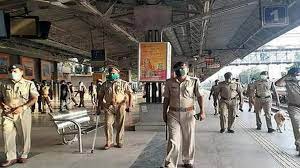
Under Operation ‘Nanhe Faristey’, the Railway Protection Force (RPF) plays an important role in reuniting the children lost/separated due to several reasons from their family.
- It was launched on Indian Railways, and under this drive, Children in need of care & protection who came into contact with Indian Railways were rescued and handed over to concerned authorities before being restored to their families.
- In 2003, the RPF partially took up the duties of escorting passenger trains and access control at the railway stations”.
- RPF is led by a director-general.
- It is an armed force under the operational and administrative control of the Union Ministry of Railways.
- It is tasked with protecting and securing railway property, the passenger areas, and the passengers themselves.
Yuva Sangam (Phase III):
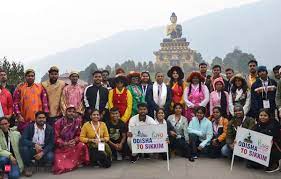
The registration portal for Phase III of Yuva Sangam, under Ek Bharat Shreshtha Bharat (EBSB), was launched.
- Yuva Sangam is an initiative by the Government of India to strengthen people-to-people connections between youth belonging to different States/UTs of India.
- Interested youth in the age group of 18-30 years, mainly students, NSS (National Service Scheme)/NYKS (Nehru Yuva Kendra Sangathan) volunteers, employed/self-employed persons, etc. may register through the YUVA SANGAM portal to participate in the forthcoming Phase.
- It was launched under EBSB, draws inspiration from the National Education Policy (NEP) 2020.
- It focuses on experiential learning and imbibing knowledge of the rich diversity of India on a first-hand basis.
- It is an on-going cultural exchange with the celebration of diversity at its core wherein participants gain an immersive experience of diverse facets of life, natural landforms, development landmarks, recent achievements, and youth connect in the host state.
- Twenty eminent institutions across India have been identified for Phase III of Yuva Sangam.
Regional Rapid Transit System:
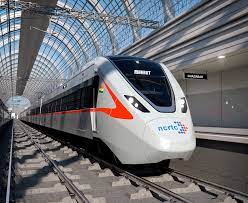
The Prime Minister of India will inaugurate the first leg of the Regional Rapid Transit System (RRTS), India’s first mass rapid system dedicated to regional connectivity.
- Regional Rapid Transit System has semi high-speed rail connectivity at its core; the RRTS is an integrated mass transit network.
- It aims to ensure “balanced and sustainable urban development” through better connectivity and access across the National Capital Region (NCR).
- It is constructed by the National Capital Region Transport Corporation (NCRTC), which is a joint venture company of the Central government and the governments of Delhi, Haryana, Rajasthan, and Uttar Pradesh.
- It is modelled on systems such as the RER in Paris, Regional-Express trains in Germany and Austria, as well as the SEPTA Regional Rail in the United States, among others.
- These trains will travel significantly faster than metro trains. These will operate at a speed of 160 km/hour but are designed to be able to run at speeds up to 180 km/hour.
- Eight corridors will be developed under the project, of which three are being constructed under phase I: the 82-km Delhi-Ghaziabad-Meerut, the 164-km Delhi-Gurugram-SNB-Alwar, and the 103-km Delhi-Panipat corridors.
Siena Galaxy Atlas:
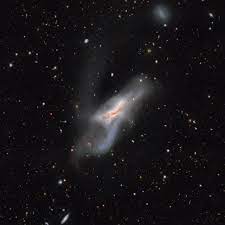
Astronomers have created a beautiful atlas of 400,000 galaxies in the cosmic neighbourhood of Milky Way and named it the Siena Galaxy Atlas.
- Siena Galaxy Atlas is a digital atlas that was created to get to know our universe better through several of the known galaxies.
- It was created using data from three astronomical surveys collected between 2014 and 2017 at Cerro Tololo Inter-American Observatory (CTIO) and Kitt Peak National Observatory (KPNO). Together, these surveys are known as the DESI Legacy Surveys.
- It is dependent on state-of-the-art digital images captured by advanced technology, unlike previous atlases, which relied on antiquated equipment and photographic plates.
- As it is built on the images captured with highly sensitive instruments, it boasts the most accurate data.
- It is also the first cosmic atlas to feature the light profiles of galaxies - a curve that describes how the brightness of the galaxy changes from its brightest point to its dimmest.
Someshwara Inscription:
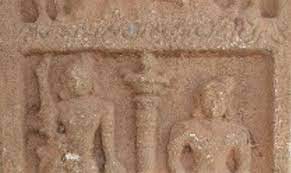
Archaeologists discovered a rare inscription connected to the Alupa dynasty during a recent archaeological exploration at Someshwara near Mangaluru, Karnataka.
- Someshwara inscription is very significant in the study of Tuluva history and culture.
- It has two panels on the top, and in between the two panels, the first line is engraved.
- The rest of the inscription written below the panels is in Kannada script and the language of 12th century characters announcing the death of Alupendra I.
- The human figures shown in the inscription represent Kulashekara Alupendra himself.
- To the left of this panel, divided by a pillar, the King is again shown in a sitting posture on a mound, resting both his palms on the centre of his legs in dhyana mudra.
Tilapia Parvovirus:
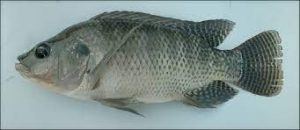
India has witnessed its first encounter with Tilapia Parvovirus (TiPV), in Tamil Nadu causing a significant impact on the country’s aquaculture.
- This virus has been reported in farm-bred tilapia, a freshwater fish species, and has raised concerns due to its high mortality rates.
- TiPV is a viral pathogen that primarily affects tilapia.
- It belongs to the Parvoviridae family, known for its small, non-enveloped, single-stranded DNA viruses.
- First reported in China in 2019 and Thailand in 2021. India is the third country to report the occurrence of TiPV.
- TiPV has caused mortality rates ranging from 30% to 50% on fish farms.
- In laboratory settings, it has led to 100% mortality, highlighting its devastating impact.
- TiPV outbreak can also pose a threat to the biodiversity and ecology of freshwater bodies as tilapia is an invasive species that can compete with native fish for food and space.
- TiPV outbreak can also affect the food security and nutrition of the people who depend on tilapia as a source of protein and income.
Golden Peacock Award:

REC Limited (formerly Rural Electrification Corporation Limited) a Maharatna Central Public Sector Enterprise under the Ministry of Power, has received the Golden Peacock Award in Risk Management for its commitment to implementing effective risk assessment strategies.
- The Golden Peacock Awards, established by the Institute of Directors (IOD), India in 1991, has emerged as an internationally acclaimed standard for corporate excellence.
- The IOD is an apex professional association for Directors in India under the Societies Registration Act, XXI of 1860 to fill the need for professional development of Corporate Directors and building effective Boards.
- REC Limited is a Non-Banking Financial Company (NBFC) focused on Power Sector Financing and Development in India.
- It provides financial assistance to various entities in the power sector.
- REC’s funding contributes to lighting every fourth bulb in India.
Ethics committee Of Lok Sabha:
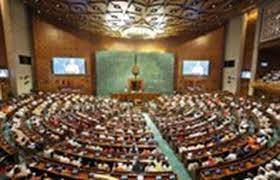
Lok Sabha Speaker has referred a “cash-for-query” complaint made by a BJP MP against a Trinamool Congress member to the Ethics Committee of the Lower House.
- The complaint is based on evidence from an advocate, which he claims shows the exchange of bribes between the accused and a businessman.
- He also pointed out that a significant number of recent parliamentary questions were focused on the Adani Group, a conglomerate she has accused of malpractices.
- The Lok Sabha Ethics Committee examines complaints of unethical conduct by members of the Lok Sabha.
- The committee was established in 2000 by the late Speaker G M C Balayogi. It became a permanent part of the House in 2015.
- The committee was established in Rajya Sabha in 1997.
- The committee’s functions include:
- Examining complaints of unethical conduct by members of the Lok Sabha
- Making recommendations
- Formulating a code of conduct for members
- Suggesting amendments or additions to the code of conduct
Reversible Inhibition Of Sperm Under Guidance:

The Indian Council of Medical Research (ICMR) has successfully tested a long-lasting male contraceptive called “Reversible Inhibition of Sperm Under Guidance” (RISUG).
- RISUG is a non-hormonal injectable male contraceptive that blocks the production of sperm by creating a physical barrier in the vas deferens, the tube that carries sperm.
- It begins to work within two months of injection and remains effective for up to a decade.
- The overall efficacy of RISUG in achieving azoospermia (absence of sperm) was 97.3%, and it was 99.02% effective in preventing pregnancy without any serious side effects.
- This breakthrough in male contraception offers a safe, effective, and long-lasting option for family planning.




